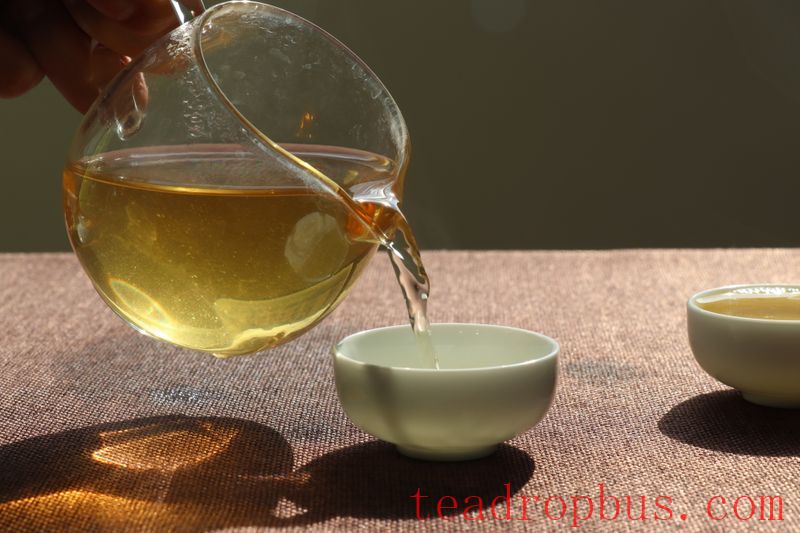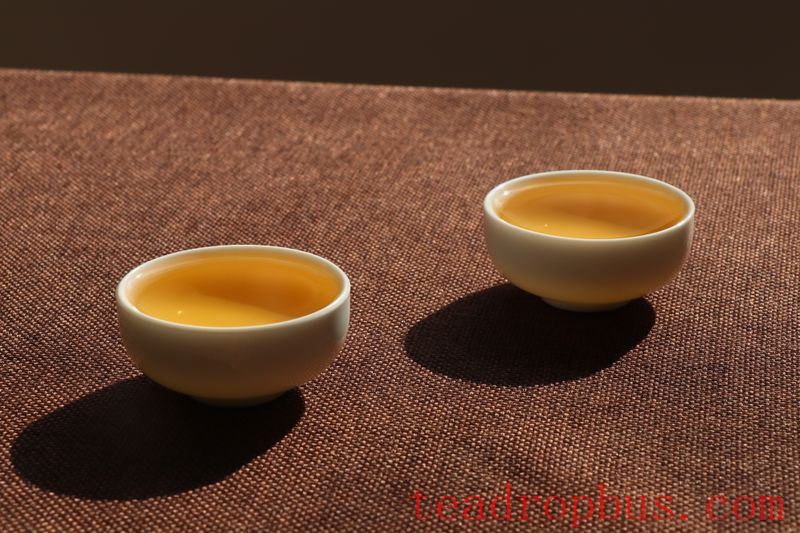Everyone says that Drinking Tea is good for health and benefits the body. Only by truly understanding these effects can one develop a love for Tea and savor its Health benefits. Among today's top three beverages, tea stands out as the best in terms of health benefits, surpassing coffee and milk tea, and is unmatched by many other drinks. The nutritional and medicinal components in tea have been recognized by the global medical community as the “ideal beverage of the atomic age” and the “best health drink of contemporary times.”

The Health Benefits of Tea
Scientists believe that drinking tea is one of the secrets to longevity, and the health benefits of tea have been confirmed by modern science. Tea contains high levels of vitamin C, which can promote fat oxidation and help eliminate cholesterol, thereby participating in the body's redox reactions and promoting detoxification. This makes it a very beneficial tea beverage for the body.
The vitamins and trace elements in tea can maintain blood vessel elasticity, prevent hypertension, and atherosclerosis. Tea can also stimulate the central vasomotor system, enhancing heart and kidney function, promoting blood circulation, increasing glomerular filtration rate, and increasing urine output. Tea contains a large amount of Caffeine, which has a strong diuretic effect. It can not only prevent the formation of kidney stones but also lower cholesterol and even aid in the digestion of protein-rich foods.

1. Softens Blood Vessels
Tea can enhance blood vessel elasticity, promote blood circulation, dilate the coronary arteries, and has a strong effect on the heart. It plays a role in preventing coronary heart disease, hypertension, and stroke, which is why most tea drinkers tend to be older. Drinking Green Tea significantly reduces serum total cholesterol, especially triglycerides. Green tea can alleviate and prevent cardiovascular diseases and atherosclerosis.
2. Refreshes and Awakens the Mind
Whenever feeling drowsy or fatigued, drinking tea can invigorate you. Tea can stimulate the central nervous system, helping to refresh and relieve fatigue while also enhancing memory. The caffeine in tea can stimulate the cerebral cortex, central nervous system, and respiratory centers.
Research has found that green tea contains rich amounts of effective components, particularly catechins, which are powerful antioxidants with the ability to inhibit cell mutations and cancer. Green tea can suppress tumor development. The polyphenols in tea can block the synthesis of nitrosamines in the human body and have inhibitory effects against the mutagenic properties of aflatoxin and benzopyrene.

3. Delays Aging
Many women who want to look better or maintain their skin often go to beauty salons or use expensive skincare products. However, drinking tea can also make one appear younger. Numerous studies have confirmed that the tannins in tea are powerful antioxidants, with 18 times the neutralizing power of vitamin E, and they can play an anti-aging role within the body. The primary cause of aging is the breakage of cellular chromosomes, and the tannins in tea can prevent this breakage due to oxidation, thus achieving the goal of delaying aging.
4. Lowers Blood Pressure
Hypertension is a common condition characterized by persistently elevated arterial blood pressure. It has been proven that the catechin compounds and theaflavins in tea, especially those that inhibit angiotensin I-converting enzyme activity, are notably effective. Drinking more green tea is beneficial for individuals prone to strokes and vascular obstructions, as it keeps the blood vessels elastic, eliminates spasms, and prevents them from rupturing. The caffeine and catechins in tea can relax the blood vessel walls, increase the effective diameter of the vessels, and through vasodilation, can help reduce blood pressure.

5. Reduces Radiation Damage
Investigations have found that tea is a promising radiation antidote. Experiments using polyphenolic compounds extracted from green tea, black tea, and other teas have shown that tea can absorb radiation faster than isotopes reach bone marrow. The polyphenolic compounds in tea can absorb radioactive strontium and prevent its spread. Regular consumption of concentrated green tea can significantly reduce the accumulation of strontium-90 in the body below permissible levels. Tea also has a strong absorption effect on ultraviolet light, making it a sun protection substance.
In this way, women do not need to use excessive amounts of sun protection products; instead, by drinking more tea, they naturally gain protection against radiation. Alongside regular sun protection measures, drinking more tea over time will undoubtedly make one stand out in a crowd. These are the inherent benefits of tea, exactly what people need.